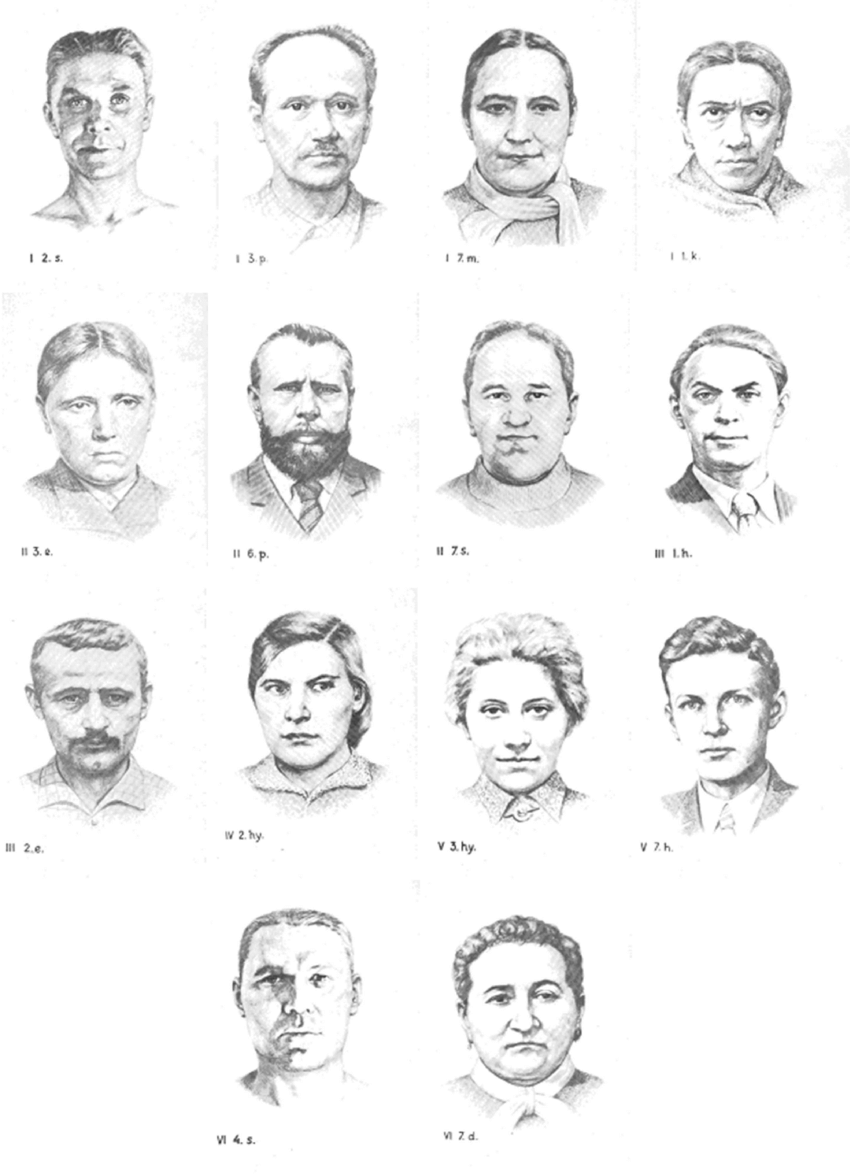Research Seminar - The Szondi Test: Mimetic Desire and the Media of Psychiatry
The Szondi Test: Mimetic Desire and the Media of Psychiatry
Presented by: Dr Grant Bollmer
Date: Friday 23 February 2024
Time: 12:00-1:00pm
Location: Online via Zoom and in-person at the SCA Writer's Studio (Level 6, Michie Building)
Abstract
The Szondi Test is a set of 46 photographic cards, first developed in 1935 and later distributed in 1947 by Verlag Hans Huber, the same Swiss publisher that prints and distributes the Rorschach Test. Each card which depicts the image of a patient diagnosed with one of eight possible personality types. In the terms used by the Test, these include sadists, hysterics, catatonic schizophrenics, paranoid schizophrenics, depressive manic-depressives, manic manic-depressives, epileptics, and homosexuals. Named for its inventor, the Hungarian psychiatrist Lepot Szondi, the Szondi Test involves a simple methodology: display the sets of photographs to a patient and ask them which photo they like most and which they like least. Szondi believed that personality types had genetic foundations, and one’s attraction or repulsion to a specific image revealed one’s similarity or distinction from those photographed. For Szondi, like attracts like and differences repel. The causes of attraction and repulsion, Szondi argued, derived from inherited, latent drives. Contrasting his perspective with that of Freud and Jung, Szondi believed his test to reveal an Ancestral Unconscious, in which personality traits corresponded to latent genes and determined personal “choice” when it came to occupation, love, hobbies, interests, illness, and death, and framed his test as a way of employing “extreme” personality types to discover underlying desires of “normal” individuals.
This talk uses the Szondi Test to ask: What would it look like for media studies and media theory to directly engage with the histories of psychology and psychiatry at a material level, treating scientific instruments and tests as forms of media? And, especially, what would it mean to study the media histories of erroneous or illegitimate forms of scientific knowledge? Additionally, this talk furthers an argument about the psychology of mimesis and mimetic desire, along with the modern intersection of media and mimesis. In the work of Wendy Chun, the technological privileging of mimesis by digital platforms is a limitation of a Silicon Valley worldview in which communities and identities are linked through a shared similarity. By positioning the Szondi Test’s foregrounding of mimetic desire as an erroneous diagnostic technique, in which one’s psychological and genealogical nature is revealed through the liking and disliking of images, this talk attempts to develop a sense of mimesis and similitude that thinks about the possibilities of digital social relation differently than as employed by media platforms today.
Presenter
Grant Bollmer is Senior Lecturer in Digital Media at the University of Queensland. He is the author of several books, the most recent of which is The Affect Lab: The History and Limits of Measuring Emotion (Minnesota, 2023). His work has been supported by the National Endowment for the Humanities and the e-flux Foundation. His next book, co-authored with Katherine Guinness, is The Influencer Factory: A Marxist Theory of Corporate Personhood on YouTube (Stanford, 2024). He is currently co-editing, with Katherine Guinness and Yigit Soncul, the De Gruyter Handbook of Digital Cultures.
About Research Seminar and Workshop Series
School of Communication and Arts Research Seminar Series
The research seminar and workshop series occur each semester, each with a different topic and guest speaker from UQ or otherwise.
Friday, 28 February Hybrid: Online via Zoom and in person at the | Generative Hate | |
Friday, 21 March Hybrid: Online via Zoom and in person at the | Close Encounters of the Hermeneutic Kind: UFOs as More-than-Human Media | |
Friday, 11 April Hybrid: Online via Zoom and in person at the | Indigenous and Local Knowledge Systems and Community Radio in India | A/Prof Elske van de Fliert |
Friday, 23 May Hybrid: Online via Zoom and in person at the | The Drama Of Anthropological History | |
Friday, 6 June Hybrid: Online via Zoom and in person at the | Video, Bias, Action. Mitigating Cognitive Biases through Role-Play Video Scenarios | |
Thursday, 31 July Hybrid: Online via Zoom and in person at the | Crossing Disciplinary Boundaries: Experiments in Public Engagement | Prof Sally Shuttleworth (Oxford University) |
Friday, 8 August Hybrid: Online via Zoom and in person at the | Designing engagement for coral reef rescue | A/Prof Elske van de Fliert and Dr Skye Doherty |
Friday, 22 August Hybrid: Online via Zoom and in person at the | Pigeon Fool’s Turing test: The relationship between embodied AI bots and networked and absent humans | Dr Abbie Trott |
Friday, 19 September Hybrid: Online via Zoom and in person at the | War in Our Hyperconnected World: Exposing the Invisible Battlespace | Dr Kathryn Brimblecombe-Fox |
Friday, 17 October Hybrid: Online via Zoom and in person at the | A/Prof Alberto N. García (Universidad de Navarra) | |
Friday, 24 October Hybrid: Online via Zoom and in person at the | Forking paths, simultaneous timelines and river monsters: an origin-story artist talk from early hypertext to XR storytelling machines | Prof Caitlin Fisher (York University, Canada) |

